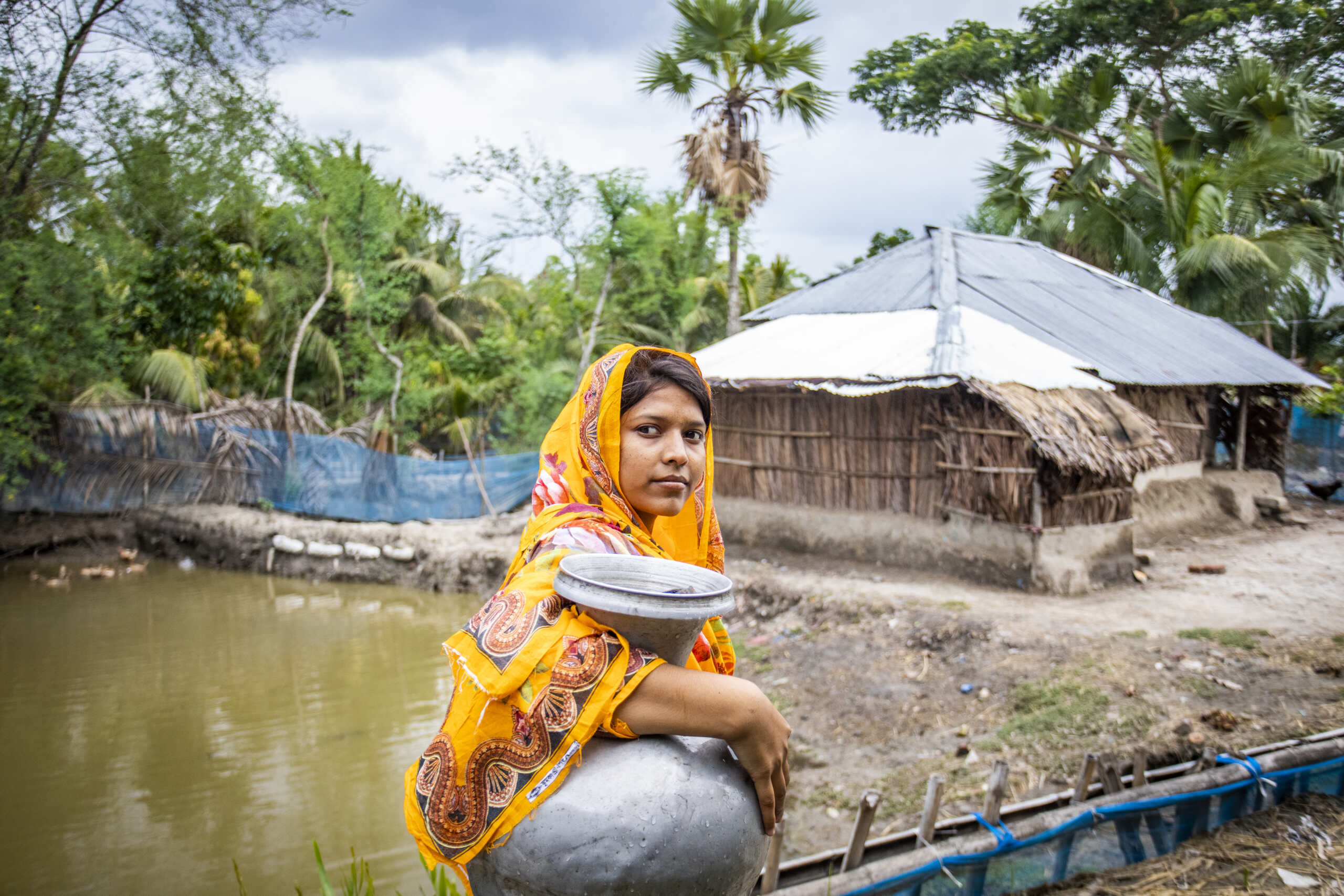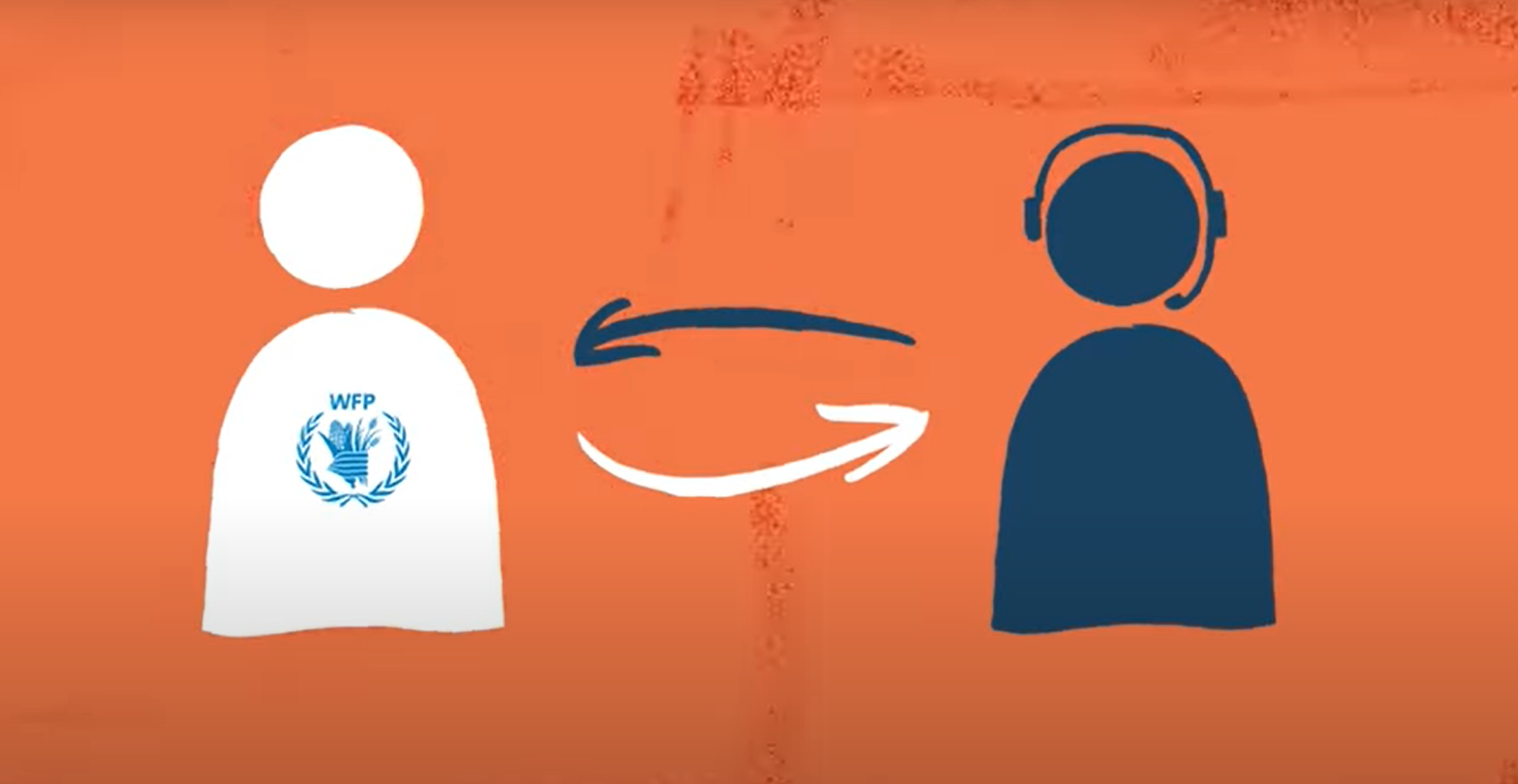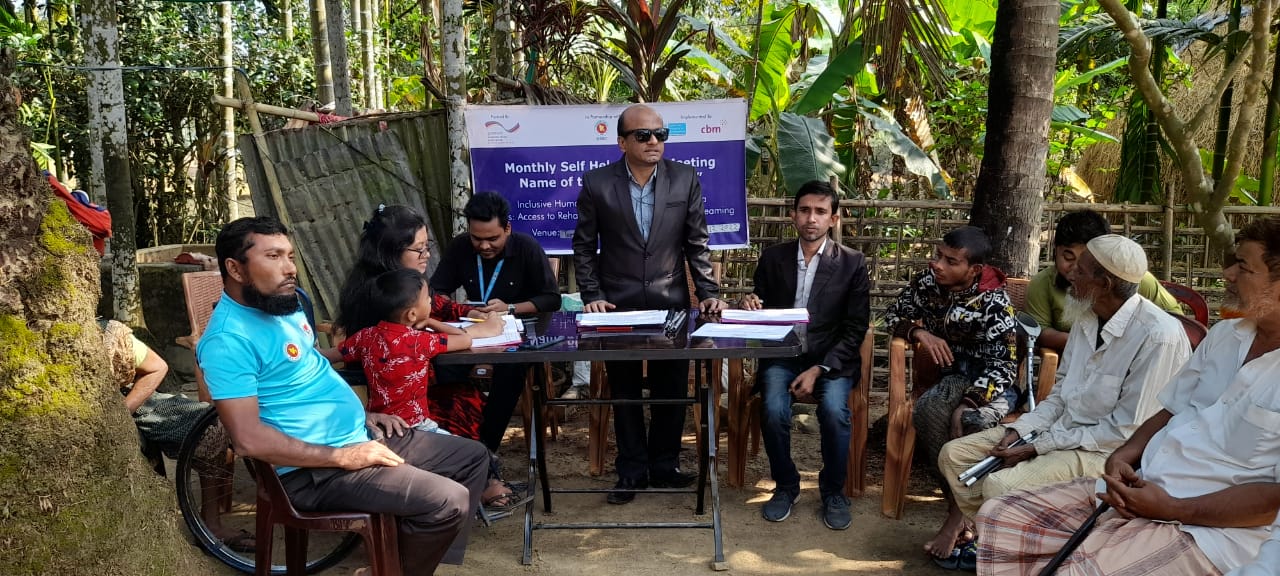Working with the Disability Movement in Advisory Work
This document outlines CBM Global Inclusion Advisory Group’s (IAG) approach to working with persons with disabilities and their representative organisations, Organisations of Persons with Disabilities (OPDs). IAG and our partners support governments, contractors, multilaterals and INGOs to put inclusion into practice. Our clients are predominantly those who fund and/or implement mainstream humanitarian and development policy and programming.
We partner with the Disability Movement in the provision of advice as a matter of principle, inherent in a rights-based approach. We also partner as a matter of effectiveness. We recognise that OPDs will continue to promote, pursue and defend the rights of persons with disabilities long after our advisory work has finished, and can contextualise and embed advice in ways we cannot.
We recognise that OPDs are not present in every area; engaged in every sector; or always prioritise advisory work within their mission. Therefore we also work with the wider disability movement, including informal groups of people with disabilities as well as individual advocates and consultants. We consult with regional or national OPDs to make them aware and seek their support for identifying suitable groups or individuals. In doing so, we endeavour to support the integrity of OPDs and their status as representative organisations.
By making this approach explicit, we encourage those with whom we work to hold us accountable.
What are Organisations of Persons with Disabilities (OPDs)?
According to the Committee on the Rights of Persons with Disabilities; OPDs rooted in, committed to, and fully respectful of the rights recognised in the Convention. OPDs are led, directed and governed by persons with disabilities. A clear majority of their membership are persons with disabilities. The characteristics of OPDs include: they are established predominantly to collectively act, express, promote, pursue and/or defend the rights of persons with disabilities; they employ, are represented by, entrust or specifically nominate/appoint persons with disabilities themselves; they are not affiliated to political parties, are independent from public authorities, and other NGOs; they represent one or more constituencies based on actual or perceived impairment; they represent groups of persons with disabilities reflecting the diversity of their backgrounds, and can include transversal identities. They can be local, national, regional or international in scope; they can be individual organisations, coalitions or cross disability or umbrella organisations.There are a range of types of organisations globally: umbrella organisations; cross disability organisations; self-advocacy organisations representing persons with disabilities in different, often loosely and/or locally formed networks and platforms; organisations including family members; organisations of women and girls with disabilities; organisations and initiatives of children and young persons with disabilities.
Our approach
Supporting OPDs to take on their preferred roles
IAG collaborates with OPDs in a range of ways in our advisory work. OPDs take on a range of roles, including:
- Providing information and evidence about priority issues for people with disabilities in that context in order to inform a policy or programme;
- Providing guidance regarding CRPD compliance of a proposed program/policy;
- Participating in programme governance/accountability and monitoring and evaluation mechanisms;
- Leading capacity development activities;
- Providing specific advice on how to make programme activities inclusive and accessible;
- Conducting funded activities as a project implementation partner (such as conducting disability studies or surveys, accessibility audits, and many more.
IAG works with OPDs to understand the context and nature of the advisory opportunity, so that the OPD can identify what role suits them best. This may be different for every opportunity and sector– an OPD might seek to provide specific technical advice in some sectors and prefer an advocacy or accountability role in others. We seek to design our role and approach to complement the preferred role of the OPD. This includes IAG supporting the OPD to upskill and take on more of the direct advisory work over time where this is an OPD priority.
Convening, brokering and opening spaces for dialogue
We seek to use our position to facilitate effective communication between governments, development and humanitarian actors, and OPDs. This includes, where appropriate, brokering relationships between our advisory clients and OPDs (and between OPDs) to undertake preferred roles as described above. This includes supporting advisory clients to provide adequate budget, and to consider accessibility and reasonable accommodation.
Aiming for diversity
We aim to work with the Disability Movement in all its diversity, including working with OPDs and individuals with diverse disabilities; genders; age; sexuality; ethnicity and across urban and rural locations.
We aim to model participation and inclusion to development and humanitarian actors through our approach, whilst recognising we are all learning and can always improve.
Mutual, ongoing learning
We recognise that the changes required for full realization of the rights of persons with disabilities are complex. We are all learning together. We seek to foster mutual learning and exchange and get critical feedback from OPDs on our work. IAG seeks to share our learning about using advice as a way to influence the development and humanitarian sectors. We seek to work together in ways that strengthen capacity, even if this requires additional time and investment.
Supporting the Disability Movement as a whole
- Alongside CBM Global’s commitments to OPDs, IAG seeks to use our work with development and humanitarian clients to create opportunities with OPDs for funding; organisational development; networking; capacity development and influence.
- We seek to join OPDs in supporting emerging leaders from the movement by offering opportunities for upskilling.
- We prioritise working with OPDs over individual consultants.
- We aim to build the capacity of individual advisors in ways which will support the integrity of OPDs and the broader disability movement.
Professional recognition
We ensure contributions from the Disability Movement are recognised and credited including through payment of fees as applicable.
Partnership approach
We seek to develop ongoing strategic partnerships with OPDs with whom we regularly engage. Investing in getting to know one another, and to understand organisational context and priorities is more effective than engaging on a project-by-project basis. This requires time and effort to regularly discuss strategy, approaches and ways of working together.
Building an evidence base together
We seek to work with OPDs in building an evidence base for CRPD-compliant approaches. This can include brokering relationships between OPDs and research institutions.
Implications of this approach for IAG clients
Our approach requires the allocation of adequate time and resources (including budget) to ensure effective participation of the Disability Movement in advisory work. Sufficient lead time to coordinate with Disability Movement partners is required. We firmly believe this enhances the quality and credibility of our advisory services and ultimately the quality of the disability inclusive development work of client agencies.
This approach document was developed in 2016, and updated in 2018, 2020, and 2023.
Notes
1 Derived from Committee on the Rights of Persons with Disabilities General Comment No.7 (2018) on the participation of persons with disabilities, including children with disabilities, through their representative organisations, in the implementation and monitoring of the Convention.



